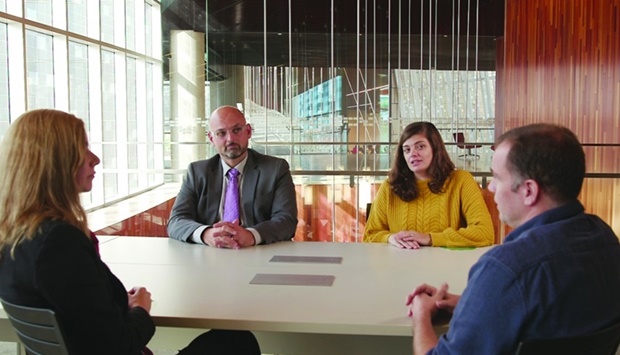Northwestern University in Qatar (NU-Q) has announced a new research institute that will focus on the Global South.
Dean and CEO Marwan M Kraidy said that the institute is “designed to amplify the reach and impact of our faculty and student research and media making, and to enhance our reputation as a distinctive contributor to Northwestern University, the Qatar Foundation, and knowledge more broadly.”
From its Qatari and Arab location, the Institute for Advanced Study in the Global South (#IAS_NUQ) will produce and promote evidence-based storytelling focused on the histories, cultures, societies, and media of the Global South. “IAS_NUQ has an inclusive vision of globality,” Kraidy said, “that recognises the diversities and inequalities that shape our world.”
Kraidy said he founded the institute to mitigate the under-representation of researchers and creators from the Global South in global knowledge production. Many stories about Qatar, the Arab world, and the Global South are told by authors, researchers and journalists in the West. The local creation of globally relevant knowledge, and the establishment of South-to-South intellectual, creative, and educational exchanges, are vital to successful knowledge based-societies and sustainable communities. With partners like Qatar Foundation and the Buffett Institute for Global Affairs at Northwestern, #IAS_NUQ will be transformative in positioning NU-Q to shape our understanding of the world.
In its formative years, the institute will focus on four broad themes: Ways of knowing in the Global South; geopolitics, information, and culture; the global future and media work in the Global South.
By leading multidisciplinary teams of researchers and creators to tackle enduring issues and pressing challenges, the Institute for Advanced Study in the Global South will make significant contributions not only to knowledge, but also to society at large. “Any research about the Global South produced at a leading US university in Qatar must be disseminated in both Arabic and English, and at least one third language of relevance. Our multi-lingual outputs will also be multi-modal, making full use of digital technologies to broaden our reach and deepen our impact,”Kraidy, noted.
Clovis Bergère, assistant director for research at the institute, will lead the mentoring of undergraduate and postdoctoral fellows, as well as publications and research produced by the institute. Bergère noted that the institute will work with scholars and students at NU-Q and beyond who have expertise in the liberal arts, media, communication, and journalism.
From its Qatari and Arab location, the Institute for Advanced Study in the Global South (#IAS_NUQ) will produce and promote evidence-based storytelling focused on the histories, cultures, societies, and media of the Global South. “IAS_NUQ has an inclusive vision of globality,” Kraidy said, “that recognises the diversities and inequalities that shape our world.”
Kraidy said he founded the institute to mitigate the under-representation of researchers and creators from the Global South in global knowledge production. Many stories about Qatar, the Arab world, and the Global South are told by authors, researchers and journalists in the West. The local creation of globally relevant knowledge, and the establishment of South-to-South intellectual, creative, and educational exchanges, are vital to successful knowledge based-societies and sustainable communities. With partners like Qatar Foundation and the Buffett Institute for Global Affairs at Northwestern, #IAS_NUQ will be transformative in positioning NU-Q to shape our understanding of the world.
In its formative years, the institute will focus on four broad themes: Ways of knowing in the Global South; geopolitics, information, and culture; the global future and media work in the Global South.
By leading multidisciplinary teams of researchers and creators to tackle enduring issues and pressing challenges, the Institute for Advanced Study in the Global South will make significant contributions not only to knowledge, but also to society at large. “Any research about the Global South produced at a leading US university in Qatar must be disseminated in both Arabic and English, and at least one third language of relevance. Our multi-lingual outputs will also be multi-modal, making full use of digital technologies to broaden our reach and deepen our impact,”Kraidy, noted.
Clovis Bergère, assistant director for research at the institute, will lead the mentoring of undergraduate and postdoctoral fellows, as well as publications and research produced by the institute. Bergère noted that the institute will work with scholars and students at NU-Q and beyond who have expertise in the liberal arts, media, communication, and journalism.

